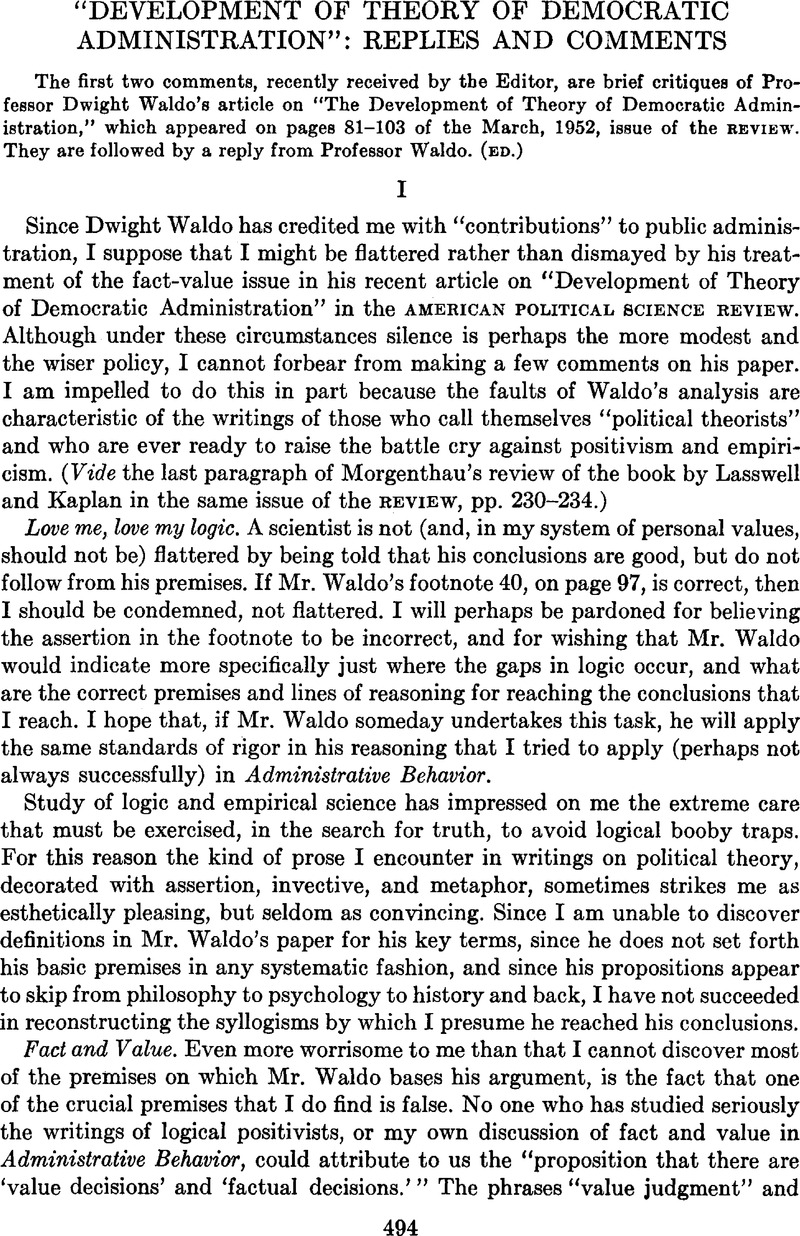Article contents
“Development of Theory of Democratic Administration”: Replies and Comments
Published online by Cambridge University Press: 02 September 2013
Abstract

- Type
- Discussion
- Information
- Copyright
- Copyright © American Political Science Association 1952
References
page 499 note 1 The New Society; The Anatomy of the Industrial Order (New York, 1950)Google Scholar.
page 501 note 1 I am suddenly self-conscious about my purple prose. My embarrassment is relieved somewhat, however, by Professor Simon's offer to break a positivist on the rack to witness his Truth. Or perhaps he really means it.
page 502 note 2 Discussion of Perry's, Charner “The Semantics of Political Science,” Vol. 44, p. 407 (June, 1950)Google Scholar.
page 502 note 3 (New York, 1947).
page 503 note 4 If the point is that I do not have “authority” to validate this value judgment, then I am entitled to ask a central question of political theory: What makes authority legitimate? The positivist answer to this is in turn tautological.
page 503 note 5 Perhaps my present conviction will be deepened by understanding the distinction. On the one hand, questions of value are airily or arbitrarily dismissed; the question of the “validity” of a value is meaningless. On the other hand, as I now understand it, all decisions flow in part from unproved value premises. I understand it, if at all, crudely and by theological analogy: fact and value are like body and soul, distinct in essence, subject to different laws, in life inextricably joined, separable only at the will of God. Facts are facts and can be dealt with as such—unless they happen to concern people and action. If they concern people and action, then facts become fused with values, “in fact” but not in logic. Thus it is possible at the same time to admit the pervasiveness of values but to refuse to deal with them as values. In reply to any question concerning them, the logical positivist points to an escalator that ascends and ascends but never arrives anywhere.
- 34
- Cited by




